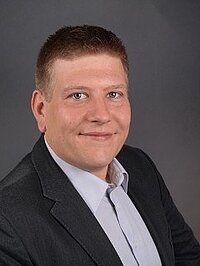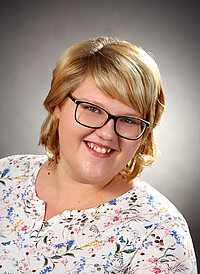Group 2
Comparative Group 2: Certificate programmes - a way to professionalisation of adult educators?!
Professionalisation, Career Paths, Certificate Programmes
In comparing different national cultures and traditions, structures and practices of adult education, we also have to examine the professionalisation of adult education. The comparative group will focus on certificate programmes for adult educators: Which certificate programmes exist? What kind of knowledge and skills are considered as relevant? Which career paths do they presuppose? How do they contribute to professionalisation?
The comparison will theoretically be framed by more recent discussions in the sociology of professions and their adoption in adult education.
The outcomes of the comparative group will enable the participants to analyse the professionalisation of adult education in their home countries and to compare them with others in international contexts. Last but not least, participants reflect their own process of professionalisation.
Comparative research question
1. Which requirements, structures and contents characterize certificate programmes for adult educators?
2. What are benefits of these programmes and how do they contribute to professionalisation?
Context of comparison
The main context of comparison will be different certificate programmes for adult educators within specific institutional contexts, e.g. Curriculum globALE, NALA-WIT Accreditation Project (Ireland) and wba-certification (Austria). Of course, also the influence of policies, programmes and regulations on national as well as on supranational level have to be taken into account.
Role of Practitioners
On the one hand, practitioners reflect on their way of being a professional and in how far certificate programmes played a role in their own professional biography, either as a participant or as an educator in / an coordinator of such programmes. Where do Practitioners see the benefits of such programmes and their impact on professionalisation? The international comparison allows them do embed this reflection in a broader context of different national settings. On the other hand, they bring their practice experience to the group.
Categories of comparison
(selection for the transnational essay is based on participants research interests)
1. Target groups: The first category deals with the target groups of adult educators´ certificate programmes and their prerequisites. Who participates in the programmes? Which entrance requirements exist?
2. Structures and contents of certificate programmes: This category will consider the structures and contents of certificate programmes for adult educators. How are the programmes structured? Which contents are taught?
3. Relevance and benefit: This category includes an assessment of the relevance of certificate programmes for adult educators. Here it is necessary to establish a connection to professionalisation. How can certificate programmes promote the professionalism of adult educators? How important are certificate programmes to build a professional pathway?
References
Egetenmeyer, R., Breitschwerdt, L., and Lechner, R. (2019): From ‘traditional professions’ to ‘new professionalism’: A multi-level perspective for analysing professionalisation in adult and continuing education. In: Journal of Adult and Continuing Education 25 (1), pp 7-24.
Deutscher Volkshochschul-Verband International (2015): Curriculum globALE. retrieved 25.05.2019, from https://www.dvv-international.de/fileadmin/files/Inhalte_Bilder_und_Dokumente/Materialien/Curriculum_globALE/Curriculum_globALE_2nd_Edition_English.pdf.
Nuissl, E. (2009): Profession and Professional Work in Adult Education in Europe. Studi sulla Formazione 12(1/2), pp. 127-132. DOI: 10.13128/Studi_Formaz-8591
Lattke, S. / Nuissl, E. (2008): Qualifying adult learning professionals in Europe. Bielefeld: wbv.

Dr. Jörg Schwarz, Helmut Schmidt University Hamburg, Germany
Emphasising the connections between social structures, organizations and professional work in Adult Education, Jörg Schwarz has worked on professional fields and relational professionalism in adult education, on the socialisation process of adult educators, on professionalization of entrepreneurship counselling and on young researcher’s career trajectories. More recently, he focusses on the (re-)production of time regimes in professional work.

Jessica Kleinschmidt, Helmut Schmidt University Hamburg, Germany
Jessica Kleinschmidt is a PhD student at the professorship for continuing education and lifelong learning at Helmut Schmidt University/University of the Federal Armed Forces Hamburg. Her expertise lies in occupational continuing education and learning in adulthood from a practical perspective. Her research interests include the transitions of executives within companies.


